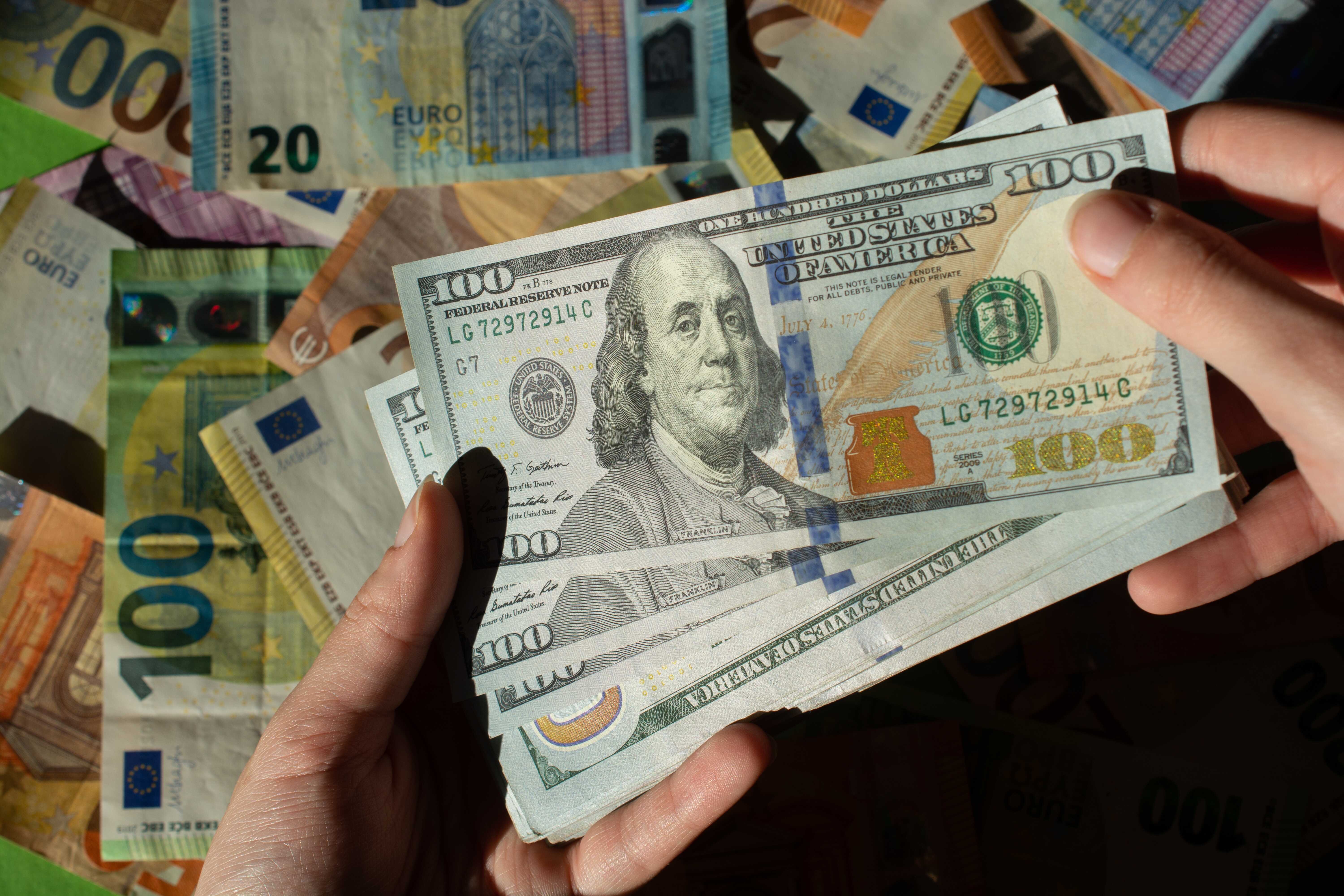Prediction: This Will Be Wall Street's Next Trillion-dollar Stock

For more than two years, the bulls have been running wild on Wall Street, with the Dow Jones Industrial Average, S&P 500, and Nasdaq Composite all ascending to multiple record-closing highs in 2024. While there have been pockets of strength in most sectors and industries, the stock market's trillion-dollar businesses have shouldered a sizable portion of this rally.
Entering last week, and excluding inflationary changes over time, 10 publicly traded companies around the globe had reached a nominal market cap of $1 trillion -- nine of which can be purchased on U.S. exchanges. This includes all members of the "Magnificent Seven:"
Where to invest $1,000 right now? Our analyst team just revealed what they believe are the 10 best stocks to buy right now. See the 10 stocks »
- Apple
- Microsoft
- Nvidia
- Amazon
- Alphabet
- Meta Platforms
- Tesla
It also includes Saudi Aramco, which isn't traded on U.S. exchanges, as well as Warren Buffett's Berkshire Hathaway and Taiwan Semiconductor Manufacturing.
Image source: Getty Images.
Last week, on Dec. 13, this elite club welcomed its newest member: networking solutions specialist Broadcom (NASDAQ: AVGO).
Broadcom is only the 11th public company globally to reach a $1 trillion market cap
Historically speaking, companies that complete forward stock splits have a tendency to handily outperform the benchmark S&P 500 in the 12 months following their initial split announcement. Broadcom, which completed its first-ever split in mid-July (10-for-1), is holding true to this data.
As of the closing bell on Dec. 13, shares of Broadcom are higher by 101% in 2024 and 302% since the start of 2023. This outperformance has been driven almost entirely by the artificial intelligence (AI) revolution.
AI involves the use of software and systems to handle tasks that humans would normally undertake or oversee. The ability for AI-driven software and systems to become more proficient at their tasks over time, as well as evolve to learn new skills, gives this technology virtually limitless long-term potential.
While Nvidia has been the primary beneficiary of the rise of AI -- Nvidia's graphics processing units (GPUs) are effectively the brains behind split-second decision-making in high-compute data centers -- Broadcom has found its calling as the preferred supplier of AI networking solutions.
Last year, the company introduced the Jericho3-AI fabric as a way to connect up to 32,000 GPUs at once in AI-accelerated data centers. Broadcom's AI-networking solutions reduce tail latency and maximize the computing capabilities of AI-GPUs.
In fiscal 2024, which ended on Nov. 3, Broadcom reported $12.2 billion in AI sales, which represents a cool 220% increase from the prior-year period. To boot, management anticipates AI revenue will climb to a range of $60 billion to $90 billion in three years.
But Broadcom is a diversified company that has its fingers in more than just AI networking solutions. It also supplies wireless chips used in next-generation smartphones, is a key player in cybersecurity solutions, and provides optical sensors for the industrial, healthcare, and tech sectors.
Seemingly every facet of Broadcom's operations is firing on all cylinders, which is why it became only the 11th publicly traded company worldwide to reach the nominal trillion-dollar plateau.

Image source: Getty Images.
This stock has the clearest path to become Wall Street's next trillion-dollar company
Yet if history teaches us anything, it's that Broadcom won't be the last public company to clear a $1 trillion valuation. As of Dec. 13, four other public companies are between $243 billion and $383 billion away from reaching this psychological mark:
- Walmart: $757 billion market cap
- Eli Lilly: $749 billion
- JPMorgan Chase: $675 billion
- Visa (NYSE: V): $617 billion
Although Walmart is the closest in market value, it's also the slowest-growing and, arguably, priced to perfection. Likewise, drugmaker Eli Lilly is expected to face growing competition in the weight-loss category. And while President-elect Donald Trump's administration is likely to relax banking regulations, it's tough to envision JPMorgan Chase adding close to 50% to its market cap anytime soon.
Though it may not happen for a few years, the stock likeliest to follow in Broadcom's footsteps and reach a trillion-dollar valuation next is payment processor Visa, which is fast-growing and has macro and company-specific factors working in its favor.
On a macro basis, Visa benefits from the nonlinearity of the economic cycle. Though financial stocks are predominantly cyclical and recessions are both normal and inevitable, downturns are historically short-lived. Out of the 12 U.S. recessions since the end of World War II, nine resolved in less than a year, and the remaining three failed to surpass 18 months in length. By comparison, most periods of growth last multiple years, including two economic expansions that reached the 10-year mark. In other words, consumer and enterprise spending are steadily growing over time.
To build on this point, Visa has shunned lending and acts solely as a payment facilitator. Since it doesn't lend, Visa doesn't have to worry about credit delinquencies, loan losses, or setting aside capital to cover potential losses during economic downturns. This subtle distinction helps the company bounce back from recessions faster than most financial stocks.
Visa has company-specific competitive advantages, too. According to eMarketer, Visa accounted for $6.445 trillion in credit card network purchase volume in the U.S. in 2023, which is around $2.6 trillion more than its three biggest rivals, combined! It's the clear go-to for merchants wanting to facilitate payments.
Furthermore, Visa has an extensive runway to expand its infrastructure into chronically underbanked, but rapidly growing, emerging markets. It's generating more than enough operating cash flow to organically expand its infrastructure into new markets to take advantage of consistent double-digit cross border growth in payment volume. But keep in mind that Visa will, on rare occasion, also make acquisitions to quickly expand its reach.
With Wall Street forecasting annualized earnings growth of 14% for Visa through fiscal 2028 (ended Sept. 30, 2028), the table appears set for this payment-processing colossus to become Wall Street's next trillion-dollar stock.
Don’t miss this second chance at a potentially lucrative opportunity
Ever feel like you missed the boat in buying the most successful stocks? Then you’ll want to hear this.
On rare occasions, our expert team of analysts issues a “Double Down” stock recommendation for companies that they think are about to pop. If you’re worried you’ve already missed your chance to invest, now is the best time to buy before it’s too late. And the numbers speak for themselves:
- Nvidia: if you invested $1,000 when we doubled down in 2009, you’d have $342,278!*
- Apple: if you invested $1,000 when we doubled down in 2008, you’d have $47,543!*
- Netflix: if you invested $1,000 when we doubled down in 2004, you’d have $496,731!*
Right now, we’re issuing “Double Down” alerts for three incredible companies, and there may not be another chance like this anytime soon.
*Stock Advisor returns as of December 16, 2024
JPMorgan Chase is an advertising partner of Motley Fool Money. John Mackey, former CEO of Whole Foods Market, an Amazon subsidiary, is a member of The Motley Fool's board of directors. Suzanne Frey, an executive at Alphabet, is a member of The Motley Fool's board of directors. Randi Zuckerberg, a former director of market development and spokeswoman for Facebook and sister to Meta Platforms CEO Mark Zuckerberg, is a member of The Motley Fool's board of directors. Sean Williams has positions in Alphabet, Amazon, Meta Platforms, and Visa. The Motley Fool has positions in and recommends Alphabet, Amazon, Apple, Berkshire Hathaway, JPMorgan Chase, Meta Platforms, Microsoft, Nvidia, Taiwan Semiconductor Manufacturing, Tesla, Visa, and Walmart. The Motley Fool recommends Broadcom and recommends the following options: long January 2026 $395 calls on Microsoft and short January 2026 $405 calls on Microsoft. The Motley Fool has a disclosure policy.

